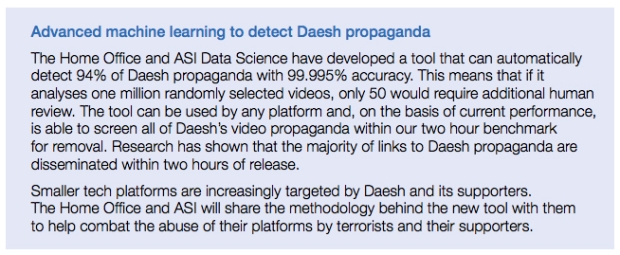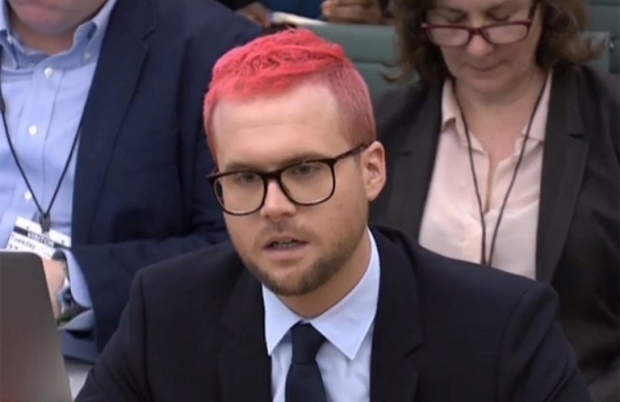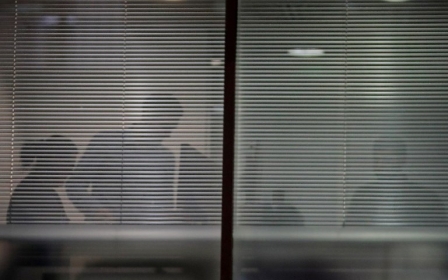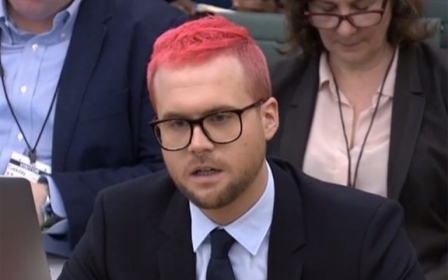Home Office-backed data scientists fighting IS online worked on projects with SCL
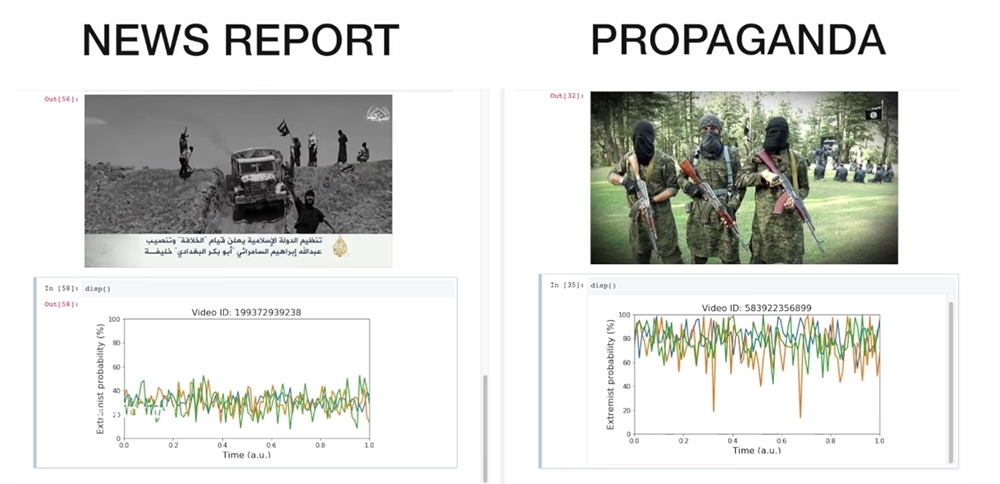
A data consultancy working with the Home Office to counter Islamic State (IS) online propaganda also worked with an affiliate of Cambridge Analytica on projects related to the use of Facebook data and voter preferences during the US presidential election, Middle East Eye can reveal.
London-based ASI Data Science provided scientific expertise to help SCL Elections – an affiliate of the political consultancy that has been at the centre of a row over its alleged use of Facebook data to target voters during the 2016 campaign and the UK's referendum on European Union membership in the same year.
Cambridge Analytica and the SCL Group, its parent company, are under investigation in both the US and the UK over allegations that they harvested data from millions of Facebook users without authorisation, and used the information to influence voters in favour of Donald Trump and "Brexit" campaigners.
Cambridge Analytica last week told MEE that SCL Elections had “licensed Facebook data and derivatives from a research company that had not received consent from most respondents” in 2014, but had subsequently deleted the data and had not used it during the 2016 presidential election. It also denies wrongdoing during the Eu referendum campaign.
'Advanced machine learning'
ASI Data Science's work for the Home Office was showcased on Wednesday in the British government's National Security Capability Review which warned of a potentially heightened threat from “Islamist terrorism” over the next two years and cited measures being taken to “make the internet as hostile an environment as possible for terrorists to use for propaganda”.
“The tool can be used by any platform and, on the basis of current performance, is able to screen all of Daesh’s video propaganda within our two-hour benchmark for removal.”
Middle East Eye has previously revealed details of SCL's work for the US and UK governments on counter-extremism campaigns targeting IS, and reported last week that the company held a data analysis contract with the Ministry of Defence which only finished last month.
Addressing a parliamentary inquiry into fake news earlier this week, Christopher Wylie, a former Cambridge Analytica employee-turned-whistleblower, also hinted at overlap between the UK's Prevent counter-extremism programme, which is run by the Home Office, and individuals who had worked with SCL.
'PsyOps' in Afghanistan, Pakistan and Libya
Referring to documents that he had submitted to the digital, culture, media and sport committee as part of its inquiry into fake news, Wylie said: “There is a quote from somebody who until very recently ran the Prevent programme… that doesn’t mean that [SCL] work on Prevent but I know that people who have worked on Prevent have also worked with SCL on projects. It is a question to maybe ask the Home Office.”
Published on parliament's website on Thursday, the documents show that a then-senior official at the foreign office's Counter-Terrorism Prevention Unit provided a reference for another SCL company, SCL Social, based on a 2008 behavioural study conducted in Pakistan “to aid the FCO [the foreign office] in strategic planning to counter violent jihadism”.
“SCL Social were a joy to work with. In a difficult operating environment they were the only contractor to deliver actionable recommendations, which impacted on policy in the near term and the FCO's strategic direction in country. I wouldn't only recommend them, I'd work with them again in an instant,” the official, whose name has been redacted in the published documents, is quoted as saying.
The documents also reveal more details about SCL's work for the British military. The company provided measurement of effect (MOE) training for the army's 15 (UK) Psychological Operations Group which involved a case study based on operations in Afghanistan's Helmand Province, according to a letter dated 11 January 2012.
“Since delivery SCL has continued to support 15 (UK) PsyOps and has done so without additional charge to the MoD. This has involved further testing of the trained product on operations in Libya and Afghanistan and, as required, further refinement of the methodology.”
Algorith 'spots extremism'
Details of the Home Office's work with ASI Data Science on countering IS online content were announced by the government last month during a visit by Home Secretary Amber Rudd to San Francisco for a meeting with Silicon Valley-based members of the Global Internet Forum to Counter Terrorism, which include Facebook, Google and Twitter.
The BBC reported that the Home Office had provided £600,000 ($843,000) to fund the development of the tool.
In a video about the project posted online by ASI on 14 February, Marc Warner, the company's chief executive, suggested that artificial intelligence-based technologies could also help security services to identify and disrupt potential “lone wolf” attackers.
Early iterations of such technology are already being used by the security services. In a report into last year's attacks in Manchester and London published in December, David Anderson, the UK's former independent reviewer of terrorism, revealed that MI5 had identified Manchester bomber Salman Abedi as a subject of interest prior to the attack based on a tool still in development that used “targeted data exploitation and other automated techniques”.
“It's really hard for conventional intelligence agencies because one person being radicalised in their bedroom doesn't show up under conventional surveillance techniques,” said Warner.
“In collaboration with the Home Office we've built an artificial intelligence algorithm, essentially a sophisticated computer program, that can spot particular types of extremist propaganda.”
A demonstration of the technology in the video showed how the algorithm was able to distinguish between an Al Jazeera news report about IS and an IS-produced video.
“The model's been designed so that it can capture videos like this as they are uploaded so they should never make it onto the internet in the first place,” said John Gibson, ASI's director of data science.
Describing the potential of Artificial Intelligence technology, Warner said: “We believe Artificial Intelligence is the transformative technology of our time. The value of Artificial Intelligence is going to be when it can be used by governments, when it can be used by companies, by hospitals, by schools. We're really focused in bringing this technology to the real world.”
Facebook 'likes', the US election, and rugby
ASI has worked regularly with SCL Elections through its ASI Fellowship programme, in which post-doctoral scientists are set to work on specific projects for “partner” companies and organisations.
ASI fellows have worked on at least 10 projects for SCL Elections since it launched the fellowship scheme in 2014. Companies pay £15,000 ($21,000) to participate as partners in the scheme, which ASI describes as an “intensive eight-week post-doctoral fellowship enabling scientists to become data scientists and engineers”.
Other organisations with which ASI has partnered on projects include Amnesty International, the BBC, the airline Easyjet, supermarket Tesco, the National Health Service, and London Irish rugby club, according to ASI's website.
One project which ASI undertook for SCL Elections in 2015 involved developing machine-learning models to use Facebook "likes" to make personality predictions that could be used to target electoral campaign adverts at individual voters.
“For SCL elections, which provides political consultancy, is it extremely important to understand the electorate,” Jack Hansom, the ASI fellow who worked on the project said in a presentation posted online.
“If we can understand the personality of the electorate on an individual level we can really design a message which really resonates with each person. A single page doesn't give you much information about a person but luckily the average person has hundreds of Facebook likes so we can put this information together to build a surprisingly accurate model of a personality.”
Others involved “modelling voter turnout probabilities” and “micro-targeting and identification of political communities using network analysis”.
The most recent projects on which ASI and SCL collaborated took place in 2016, ASI's media team told MEE in a statement.
ASI said that SCL were among 110 companies and organisations who had recruited interns through the fellowship programme.
"In the case of SCL projects, ASI’s role was solely to provide training and mentorship for the interns during their 6 week placement, in which time they worked on a project chosen and managed by SCL. The data was not shared with ASI and was stored on SCL systems at all times," the ASI media team statement said.
"Aside from the internship programme, ASI has never worked formally or informally with Cambridge Analytica or SCL in any capacity, and we have had no involvement with them in any of our work. None of ASI’s work has ever involved the use of private Facebook data or so-called 'micro-targeting'."
Vote Leave campaign
ASI also worked for the Vote Leave campaign during the referendum on the UK's membership of the European Union in 2016, according to expenses records filed with the UK's Electoral Commission.
The records show that Advanced Skills Initiative Limited was paid about £72,000 ($101,000) for “advertising” and “market research” services during the campaign.
Christopher Wylie on Wednesday told the parliamentary digital, culture, media and sport committee that Cambridge Analytica and SCL had sought to influence the result in favour of the leave campaign by using Facebook data to target voters via a Canadian company, AggregateIQ (AIQ), which was paid hundreds of thousands of pounds by Vote Leave and other registered leave campaign groups.
Wylie said that AIQ was a “franchise” of Cambridge Analytica and SCL.
But AIQ said on its website that it had “never been and is not a part of Cambridge Analytica” and had “never entered into a contract with Cambridge Analytica”.
Vote Leave's campaign finances are currently the subject of an inquiry by the Electoral Commission over allegations that they breached spending limits.
There is no suggestion that ASI worked with Cambridge Analytica, SCL or any of its affiliates on the campaign.
UK 'anti-Daesh' cell
The UK government describes itself as “leading international efforts to counter Daesh's propaganda and damage its brand,” and serves as co-chair on the Counter-Daesh Coalition Communications Cell, which is funded by and based in the foreign office in London.
A UK government website says: “Through the UK's leadership, the Cell has changed the international narrative around Daesh – from one that highlights their atrocities to one which emphasises their failures. This has been vital in damaging the perception of Daesh and reducing their ability to recruit.”
According to the coalition's website, the communication cell's work has included sharing “best practices in online anti-Daesh engagement with partner governments, including consultations with Facebook about extremists' use of social media”.
Asked about its relationship with ASI and whether it knew of its work for SCL Elections, a Home Office spokesperson told MEE: “We always carry out the usual due diligence on any companies we contract.”
She added: “We will continue to partner with companies which demonstrate effective solutions for tackling terrorist content online, such as ASI Data Science. We do not routinely comment on individual contracts.”
Middle East Eye delivers independent and unrivalled coverage and analysis of the Middle East, North Africa and beyond. To learn more about republishing this content and the associated fees, please fill out this form. More about MEE can be found here.


